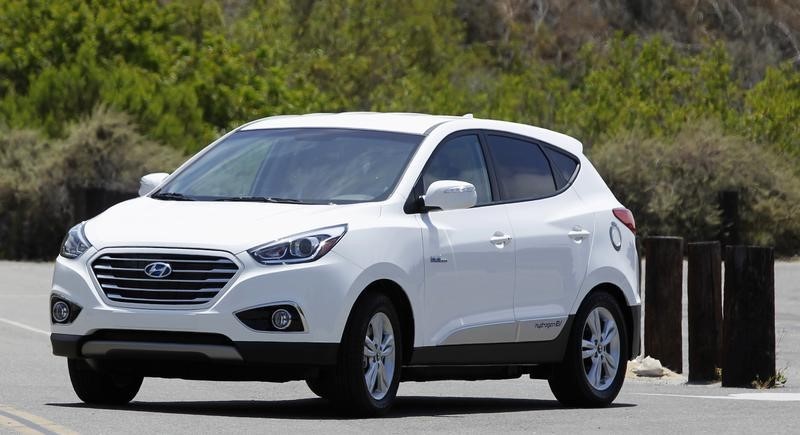By Sohee Kim
SEOUL (Reuters) - Hyundai Motor Co said it will lower the price of its Tucson fuel cell electric vehicle by 43 percent in South Korea and consider cutting prices of the car overseas to compete with models from the likes of Toyota Motor Corp.
The South Korean automaker - the world's fifth-biggest when paired with sister Kia Motors Corp - hopes to popularize fuel cell cars in its home market by cutting the price of the Tucson ix to 85 million won ($77,189).
In developing more environmentally friendly technology, Hyundai has long trumpeted fuel cell electric vehicles over battery-powered alternatives, but the high price tag and a lack of refueling stations have been roadblocks to adoption.
South Korea has only one hydrogen fuelling station, with another to be opened in the first half of this year and a government goal to increase the number to 200 by 2025.
The carmaker said it had sold only 200 electric vehicles so far, including in the United States and to European governments.
"A significant price cut in the fuel-cell driven Tucson line of vehicles will allow higher supply volume for fuel-cell vehicles in general by making them more affordable for consumers," Hyundai said in a statement on Monday.
In December, Japanese rival Toyota launched its Mirai fuel cell sedan with a pre-tax price tag of 6.7 million yen ($56,934). Toyota said on Jan. 15 that it planned to sell at least 3,000 Mirai fuel cell sedans at least in the United States by the end of 2017.
Hyundai Motor Group has said it would invest 11 trillion won in eco-friendly car development by 2020 and launch its second fuel cell model by 2020.
($1 = 1,101.2000 won)

($1 = 117.6800 yen)